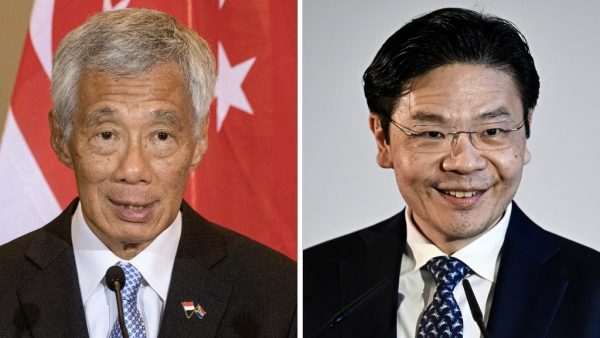Democrat leader’s grip still strong despite murmurings of revolt

Jurin Laksanawisit promised to bring change and restore unity among members when he was elected as Democrat Party leader in May last year.
One year on, that mission has yet to be fulfilled, and he is now facing a power challenge from party members. Some Democrats want to remove Jurin from his post – though their chances of doing so are slim.
Early this month, a small group of Democrat MPs began pressuring party executives to step down in order to force a new leadership election – echoing a similar recent move by the ruling Palang Pracharath Party.
Back in February, the same group of 10 MPs called for the Democrats to withdraw from the coalition after a close aide of Deputy Agriculture Minister Thammanat Prompao was accused of involvement in the hoarding of 200 million face masks amid severe shortages of the equipment. One MP equated the party’s presence in the government to “rowing a boat for bandits”.
The group called on Jurin to hold an extraordinary general meeting to discuss these issues, but the gathering has been delayed due to the COVID-19 crisis.
Jurin, who is both deputy premier and commerce minister, took the party helm after former leader Abhisit Vejjajiva resigned in response to the Democrats’ poor showing in the March 2019 general elections.
However, the 64-year-old new leader has been criticised by party members for his “centralised” management style and inability to bond with fellow Democrats. Some MPs complained that Jurin only cared about his ministry and had failed to address problems within the party, like the defection of key members like Korn Chatikavanij, Peeraphan Saleeratwipak and Warong Dechgitvigrom along with several local Bangkok politicians.
The MPs also accused Jurin of failing to declare a clear political stance or a distinct direction for the party. Party members have targeted Jurin and party secretary-general Chalermchai Sri-on, who is also agriculture and cooperatives minister, for having good relations with the ruling party, saying this has turned the Democrats into an “underling” of Palang Pracharath. They fear the party’s popularity will be further eroded and its ideological identity essentially destroyed if it is seen as being ready to join any coalition unconditionally.
The critical MPs insist they are acting in the Democrats’ best interests, but changes to the party can only be made by majority vote in a general assembly or a unanimous decision of the executive board. In contrast, big decisions in other parties may be made by a handful of people or even one person.
Internal party politics in Thailand is a game of numbers. Those with the largest number of supporters always win the battle. Given the support he enjoys within the party, Jurin is unlikely to be ousted as leader any time soon. A measure of that support came when he got his members to vote 61:16 to join the Prayut-led coalition after last year’s election.
A high-ranking Democrat Party source said most of the 39 party executives were in Jurin’s camp, as they had been nominated by the party leader and secretary-general.
“Why would they give up their posts [to pave the way for a new board election],” the source asked. “I don’t think the faction [pushing for leadership change] can gather enough signatures [to force a change], otherwise they would have done it by now.”
One senior party member described what is going on as nothing more than a storm in a teacup.
But the rumbling was enough to prompt the party leadership to arrange for a dinner among its MPs and political heavyweights last week to project a semblance of unity.
Another top source said Jurin, a politician from Phang-nga province, was fully backed by former party leader Chuan Leekpai when he competed for the party’s leadership. Chuan, who is House speaker, is well-respected by party members.
Meanwhile, history indicates it may be too soon to swap leaders, especially without a clear reason for change. The 74-year-old party has a tradition of electing a new leader only when the incumbent has completed his term, like Chuan, or has quit after failing to win an election, like Abhisit or Banyat Banthadthan.
However, some also view the turmoil in the party as a power struggle between two camps, one led by Jurin and the other by Abhisit.
Abhisit resigned as a Democrat MP in June last year after the party decided to back General Prayut Chan-o-cha as the next premier. Hence, as long as the Democrat Party remains part of the coalition, the chance of seeing Abhisit return as party leader is almost zero.
“At this particular moment, I don’t think the party would be in a position to review its stance of being part of the [Prayut] government, and I don’t think the public wants to see political manoeuvrings either,” said Abhisit, who is still a Democrat Party member, in an interview with Thai PBS World.
“Therefore, there is no reason for me to come back [to lead the party].”
By Thai PBS World’s Political Desk






